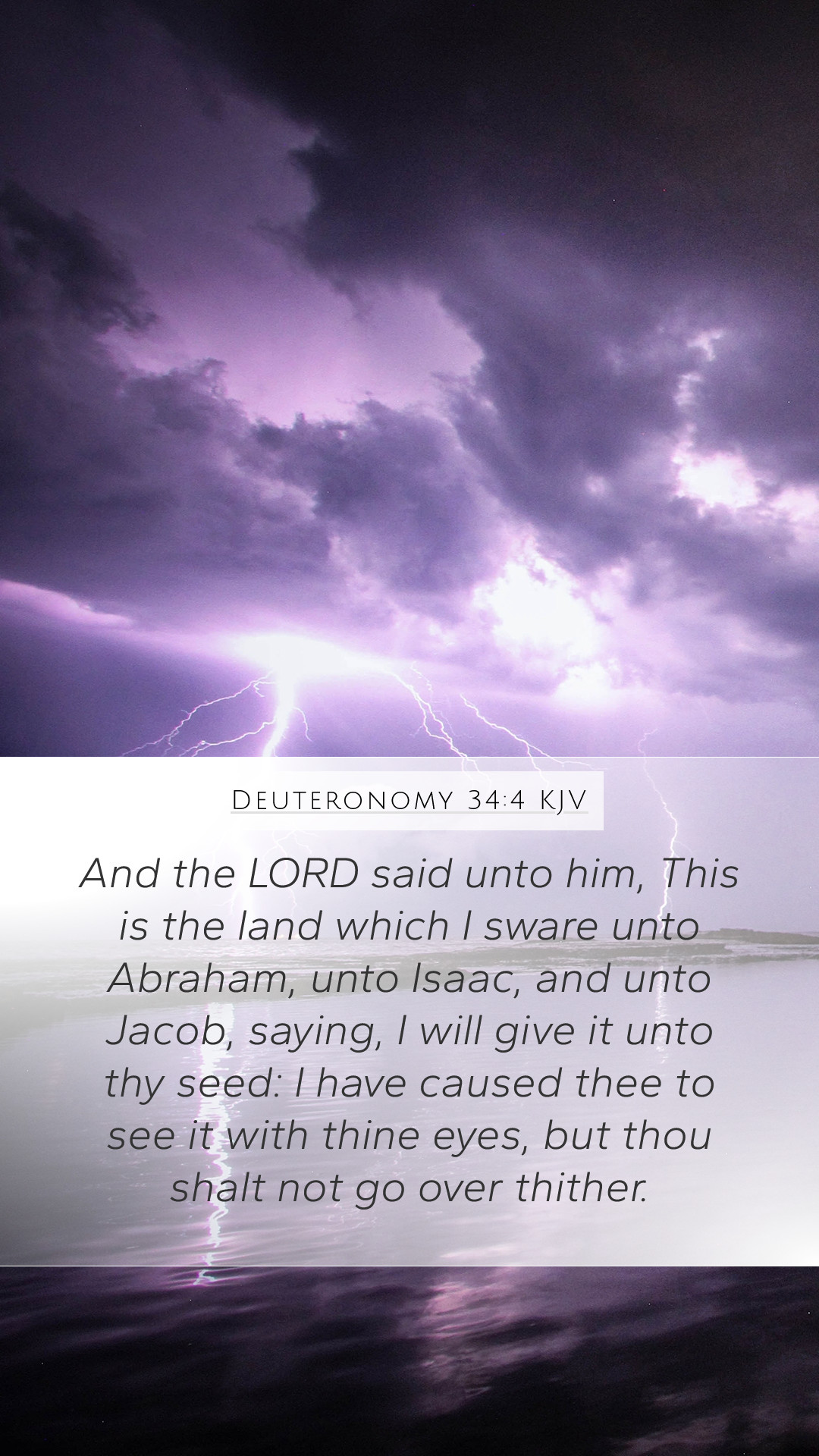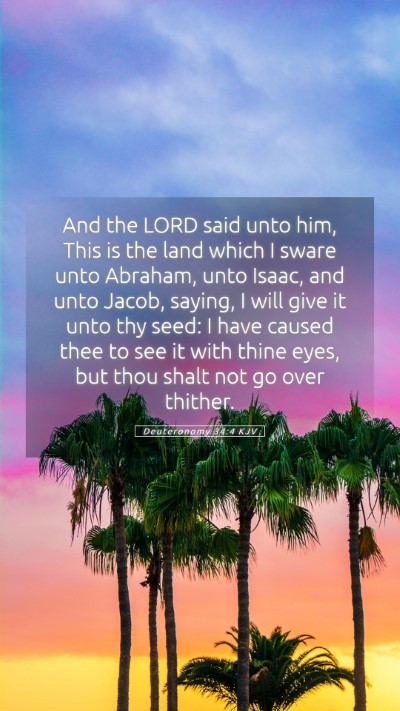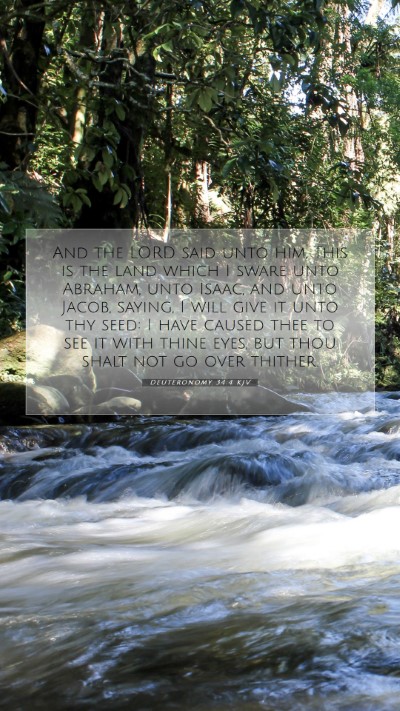Understanding Deuteronomy 34:4
Bible Verse: Deuteronomy 34:4 - "And the Lord said unto him, This is the land which I sware unto Abraham, unto Isaac, and unto Jacob, saying, I will give it unto thy seed: I have caused thee to see it with thine eyes, but thou shalt not go over thither."
Overview of the Verse
This verse is a critical moment in the narrative of the children of Israel and their journey to the Promised Land. It marks the conclusion of Moses' leadership and his view of the land that he would not enter. This passage invites us to reflect deeply on God's promises and the fulfillment of His word across generations.
Commentary Insights
- Matthew Henry's Commentary:
Henry emphasizes the fidelity of God’s promises, observing that the land of Canaan was a fulfillment of long-standing covenants made with the patriarchs: Abraham, Isaac, and Jacob. The emotional weight of Moses' view of the land he wouldn't enter shapes the narrative, serving as a poignant reminder of faith and obedience that characterizes the walk with God.
- Albert Barnes' Commentary:
Barnes explains that this verse signifies not only the fulfillment of God's promise but also the transition of leadership from Moses to Joshua. The mention of Abraham, Isaac, and Jacob highlights the historical significance of the land and God's enduring faithfulness through generations. This serves as a poetic culmination of Moses’ journey and dedication to guiding Israel.
- Adam Clarke's Commentary:
Clarke notes the geographical and spiritual significance of viewing the Promised Land. He highlights Moses' experience as a moment filled with both promise and disappointment, showcasing a believer's journey towards goals that may not always be reached in their lifetime. He elaborates on the importance of legacy and how Moses' leadership laid the groundwork for future generations.
Key Themes
- Fulfillment of Promises: This verse reinforces the notion that God's promises are not time-bound, as seen through the generations of patriarchs. Understanding Scripture in this context invites believers to trust in God's faithfulness.
- Leadership Transition: The moment marks a significant change in leadership, symbolizing hope and continuity as the people are set to enter the Promised Land under Joshua. This transition provides insights into the importance of preparing successors.
- The Journey of Faith: Moses' view of the land acts as a metaphor for the Christian experience of having hope and end goals, even when those goals aren't realized in one's lifetime. It emphasizes the importance of faithfulness throughout the journey.
Application of the Verse
This scriptural passage offers practical lessons for believers today. It serves as a reminder to trust in God’s timing and plan, even in the face of personal disillusionment. For study groups and individuals engaging in Bible study, this verse can foster discussions on the themes of hope, legacy, and obedience.
Additional Bible Cross References
- Genesis 12:7 - God's promise to Abraham regarding the land.
- Genesis 28:13 - The reaffirmation of God's promise to Jacob regarding his descendants and the land.
- Joshua 1:2-3 - The transition of leadership to Joshua and the command to enter the Promised Land.
Conclusion
The verse Deuteronomy 34:4 encapsulates the themes of faithfulness, promise, and transition. Not only does it document a historical and spiritual milestone, but it also prompts readers to reflect on their own walks of faith and the importance of trust in God's promises through time. Understanding this passage can enrich one’s Bible study insights, offering depth to personal reflection and community discussions.


